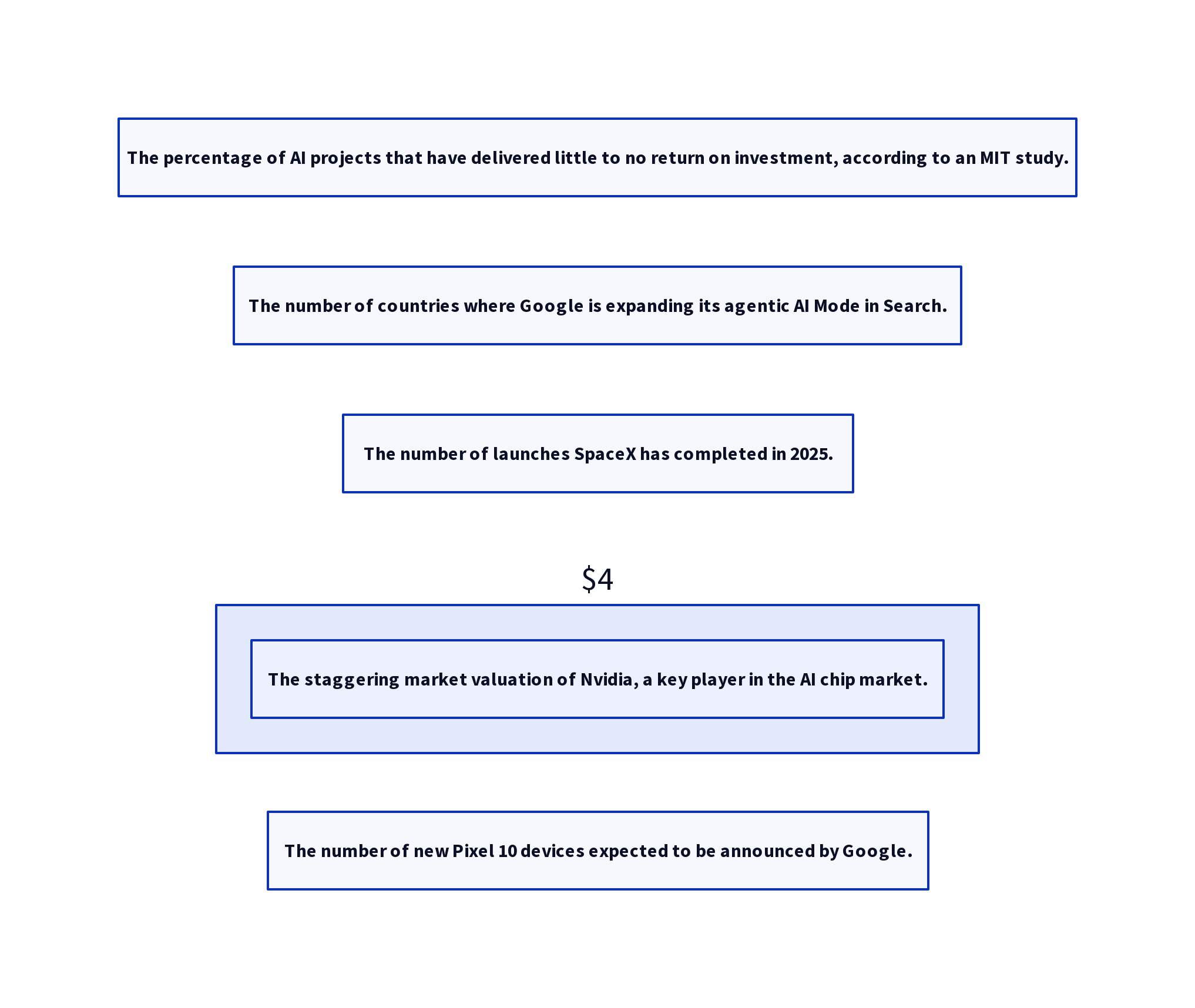
The most significant trend to emerge this week is the rapid development of agentic AI—autonomous systems that can understand a goal and take the necessary steps to achieve it without constant human oversight.
Google is at the forefront of this movement, announcing the global expansion of its AI Mode in Search to 180 countries.
This new feature will allow users to perform complex tasks like booking restaurant reservations through partners such as OpenTable and Resy with a single command.
This is being hailed as the “fourth wave” of software development, where AI agents can plan, code, test, and deploy software, potentially transforming industries like DevSecOps.
OpenAI Unleashes GPT-5 and Open-Source Models
Not to be outdone, OpenAI has reportedly launched its flagship model, GPT-5 which is said to possess “Ph.D.-level intelligence.”
The new model boasts improved reasoning, faster performance, and a significant reduction in “hallucinations” or factual errors.
In a significant move towards broader accessibility,
OpenAI also released **GPT-OSS**, a series of open-weight models that can be run locally.
An AI Reality Check?
Despite the excitement, a new study from MIT has cast a shadow over the AI boom, revealing that a staggering 95% of generative AI projects have delivered little to no growth in revenue.
This has been compounded by a recent dip in tech stocks for major AI players and an AI hiring freeze at Meta, leading some to question if we are hitting “Peak AI”.
Even OpenAI’s CEO, Sam Altman, has cautioned that investors might be “overexcited” about the potential returns on AI.
These developments suggest a maturing market that is moving beyond the initial hype and towards a more critical assessment of AI’s return on investment.
Hardware Gets Smarter with AI Integration
The integration of AI into hardware continues to be a major theme.
Samsung announced that its 2025 lineup of TVs and Smart Monitors will feature Microsoft’s Copilot,
allowing users to search for information and interact with content through voice commands.
This move is part of a broader trend to embed AI as a core feature in physical products, making them more intuitive and capable.
On the mobile front, Google is set to unveil its latest Pixel 10 smartphone lineup on August 20th,
which is expected to include four new devices:
the Pixel 10, 10 Pro, 10 Pro XL, and a new foldable, the Pixel 10 Pro Fold.
In Other Tech News…
Beyond the world of AI, several other noteworthy events took place:
SpaceX’s Record Pace: SpaceX achieved its 100th launch of 2025, a full two months ahead of last year’s pace, demonstrating its relentless launch cadence.
EV Market Shifts: New York-based startup Revel is ceasing its electric ridesharing service to focus on building out EV charging infrastructure, highlighting a strategic pivot in the electric vehicle market.
The Dark Side of AI: A new report from Anthropic details the weaponization of agentic AI for sophisticated cyberattacks, including a large-scale data extortion operation and the creation of AI-generated ransomware.
Infographic: The Week in Numbers

95%: The percentage of AI projects that have delivered little to no return on investment, according to an MIT study.
180: The number of countries where Google is expanding its agentic AI Mode in Search.
100: The number of launches SpaceX has completed in 2025.
$4.3 Trillion: The staggering market valuation of Nvidia, a key player in the AI chip market.
4: The number of new Pixel 10 devices expected to be announced by Google.
